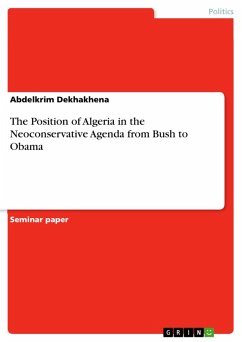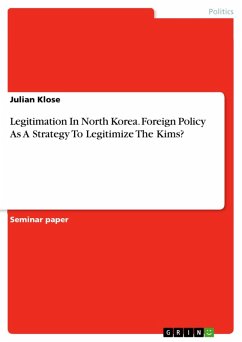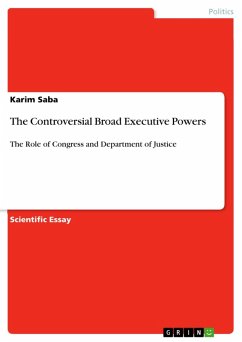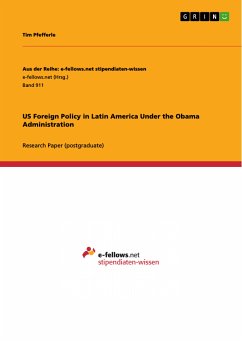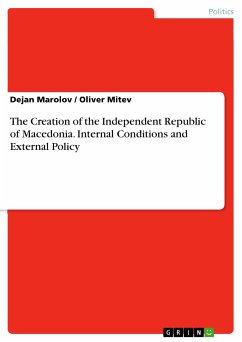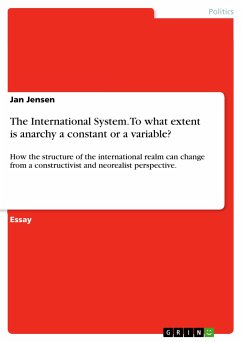Seminar paper from the year 2012 in the subject Politics - Region: USA, grade: Assistant Professor, , course: American Civilization, language: English, abstract: The U.S.-Algerian relations have long been subject to fluctuation and uncertainty since Algeria's independence. However, recently after a cabal of neoconservatives was swarmed into the Bush Administration there had been an increasing interest in the country. This paper looks into the rationale of the American unexpected shift of interest towards Algeria in the dawn of the 21st century. It situates the place of this so long neglected country in the design of American neoconservative foreign policy agenda following the 09/11 attacks. The terrorist attacks on the United States and the rise of the neoconservative cabal, undoubtedly changed international relations in significant ways. Those events pushed the United States to alter its policies toward a number of regimes by building a broad "coalition against terrorism". Washington reached out to countries that until recently were considered hostile or at least not so friendly. In foreign policy, the neoconservatives do differ from other American politicians and pundits in their intense commitment to the projection of American military and economic power. The agenda of the neoconservatives was based on stretching American influence to protect its vital economic interests by establishing friendly relations with countries that correspond to America's perspectives. Although it never constituted a priority for the United States in the past, in recent years Algeria has increasingly become a region of great interest to policymakers in Washington. However, an outstanding interest in the country came with the rise of neoconservatives to power in the Bush Administration. This new significance attached to the country derives from a number of considerations that fall into two broad sets: political and economic energy interests, and military, strategic and security interests. The first are linked to America's energy needs from oil and gas; and interest in a potentially important market for U.S. businesses, especially since competition has heightened with China in Africa. The second motives are relatively connected to Washington's reshuffle of strategic and security policies. These increased the need for new ways of managing issues related to security, terrorism and democratization.
Dieser Download kann aus rechtlichen Gründen nur mit Rechnungsadresse in A, B, BG, CY, CZ, D, DK, EW, E, FIN, F, GR, HR, H, IRL, I, LT, L, LR, M, NL, PL, P, R, S, SLO, SK ausgeliefert werden.

